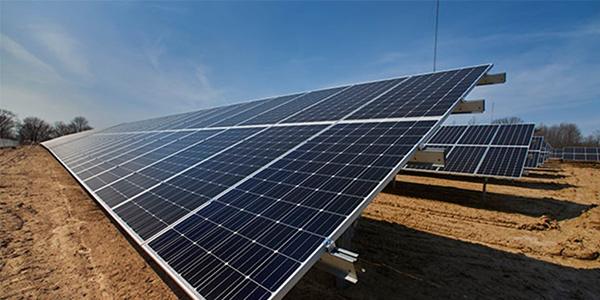By Holden Mann
NERC’s Performance Analysis Subcommittee (PAS) is preparing a data request to expand the Generating Availability Data System (GADS) to cover solar generation facilities, in addition to increasing the range of data that the system collects from wind and conventional generators.
Solar facilities of 20 MW or greater will be asked to provide plant configuration, connected energy storage, performance and event reporting, and equipment outage details under a new GADS-PV system.
Wind facilities of 75 MW or greater, which report under GADS-W, will be asked for size and other configuration data on connected energy storage.
Conventional facilities of at least 20 MW, which report to GADS, will be asked for common attributes for all unit types plus additional unit-specific characteristics. Both wind and conventional generators will also be required to provide event reporting data for the first time. The new requirements for wind and conventional facilities would take effect on July 1, 2021.
Presenting the proposal at this week’s PAS meeting, Margaret Pate, reliability risk control program liaison for NERC, said solar facilities would be phased into GADS in order to give generation operators time to adapt their protocols. Voluntary reporting would begin on July 1, 2021, and run through the end of the year. Mandatory reporting for solar facilities of 50 MW or greater would begin on Jan. 1, 2022, and would be extended to facilities of 20 MW or greater the following year.
In response to a question from PAS Chair Maggie Peacock about whether the GADS working group had considered applying the same requirements to all three types of generation, Pate said it had not. “I think the nature of the way that renewable plants are owned and operated is very different from … conventional [plants], from our experience and from what we’ve heard from the industry,” she said.
Reporting Threshold Questioned
Several subcommittee members suggested that the GADS team also consider changing the threshold for reporting generation outages. Under the current proposal, operators of solar facilities would be required to report a loss of capacity of at least 20 MW, lasting 10 minutes or longer — the same requirement that applies to wind. David Penney of Texas Reliability Entity and Joe Eto of the Lawrence Berkeley National Laboratory asked if the threshold could be changed to that required of conventional generators, which are required to report outages of one minute or more.
“My concern was that it’s the short-duration, momentary cessation [events] that have gotten flagged in our State of Reliability Report. … A number of special alerts [have] been issued by NERC around that, and [the Inverter-Based Resource Performance Task Force] is very focused on getting vendors to modify their equipment to prevent that behavior from taking place,” Eto said. “Someone ought to memorialize that we’ve succeeded by measuring when these things happen and that they’re decreasing in frequency and extent.”
Donna Pratt, performance analysis manager for data analytics at NERC, said the threshold was chosen after feedback from industry representatives that meeting the same standard as conventional generators would be “very difficult … because of the nature of the way that wind and solar operate.” The 10-minute time limit would give operators time to address temporary outages that might result from momentary supply disruptions rather than equipment issues.
The GADS working group plans to continue working on its data request after the Planning Committee’s meeting March 3. Depending on when it finishes reviewing the request, the subcommittee will pass it to either the PC or the new Reliability and Security Technical Committee. The PAS hopes to submit the plan for review by NERC’s Board of Trustees at its November meeting.





